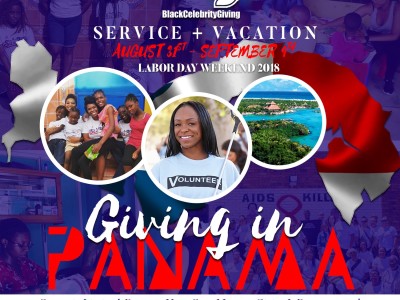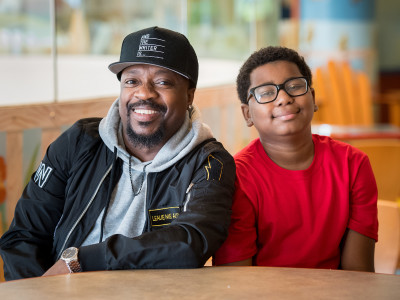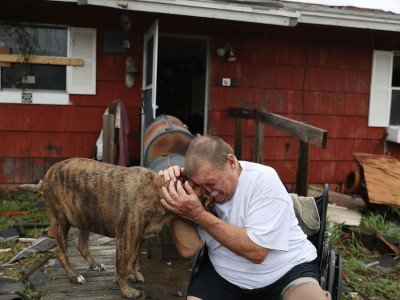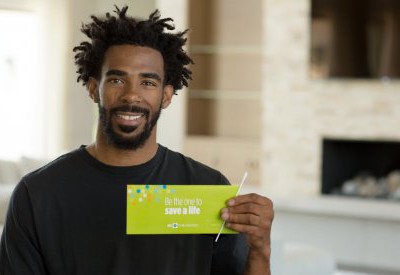 One of the most giving foundations, shaping the lives of our children across the nations is without a doubt the W.K. Kellogg Foundation. I had the pleasure of interviewing Dr. Alandra Washington about the Cultures of Giving Campaign; More than $1.3 million was raised from 3,421 total donations during the Challenge. The Foundation matched that amount with a total of $915,000. The Challenge was inspired by a recent WKKF report on philanthropy. The report, “Cultures of Giving: Energizing and Expanding Philanthropy by and for Communities of Color”, showcased the power of identity-based philanthropy. Identity-based philanthropy is a growing movement to spark philanthropic giving from a community on behalf of that community. Of course we had to k now how Kellogg is working in black communities and how nonprofit organizations can seek to work with and receive funding from the foundation. Do indulge!
One of the most giving foundations, shaping the lives of our children across the nations is without a doubt the W.K. Kellogg Foundation. I had the pleasure of interviewing Dr. Alandra Washington about the Cultures of Giving Campaign; More than $1.3 million was raised from 3,421 total donations during the Challenge. The Foundation matched that amount with a total of $915,000. The Challenge was inspired by a recent WKKF report on philanthropy. The report, “Cultures of Giving: Energizing and Expanding Philanthropy by and for Communities of Color”, showcased the power of identity-based philanthropy. Identity-based philanthropy is a growing movement to spark philanthropic giving from a community on behalf of that community. Of course we had to k now how Kellogg is working in black communities and how nonprofit organizations can seek to work with and receive funding from the foundation. Do indulge! 
Tell us about your role with the W.K. Kellogg Foundation.
My name is Dr. Alandra Washington and I joined the W.K. Kellogg Foundation in 2002. I currently oversee our Family Economic Security and Education and Learning programs. I also lead the Kellogg Foundation’s community philanthropy and effective sector strategy. Prior to this, I served for five years as CEO of the Greater East St. Louis Community Fund. Before that I led the New Spirit Organizing Office, also in St. Louis.
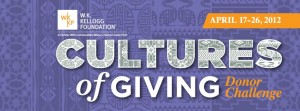 How did the idea for Cultures of Giving come about?
How did the idea for Cultures of Giving come about?
The Cultures of Giving Challenge was inspired by a recent WKKF report on philanthropy. The report, “Cultures of Giving: Energizing and Expanding Philanthropy by and for Communities of Color”, showcased the power of social change work across communities of color and identity-based philanthropy. This kind of philanthropy is defined by the incentive to give based on race, ethnicity, gender or sexual orientation. Identity-based philanthropy is a growing movement to spark philanthropic giving from a community on behalf of that community. By working with nonprofit leaders of color over a five year period, we were able to conduct research, using surveys, in-depth interviews, site-visits and analyses of data and reports. The study, though, acknowledges that the African-American community has a long history of philanthropic giving, having established its first funds in the 1920s. The report demonstrates that across communities, growth rates have varied but African-American funds have had the most consistent growth over time, increasing modestly each decade since the 1970s. Communities of color are overflowing with practices of philanthropy and giving, and have been for a long time, but very few people in communities of color define their traditions of giving as ‘philanthropy.’
April was National Volunteer Month, so we decided that April would be a great time to introduce new donors to great nonprofits, while encouraging donors to stay active as leaders in their communities. So, we hosted the first “Cultures of Giving Online Donor Challenge.” The results were phenomenal and proved that online giving is an innovative way to strengthen relationships with community donors, both on- and off-line. This work is also building the capacity of organizations across areas of technology, social networking and social media.
Who selected the organizations? Which of the 22 nonprofits focuses on children in African-American communities?
The nonprofit groups involved in the Challenge focus on high-priority issues in communities of color, including education, preventive health care, women’s and children’s advocacy and social justice. We had 22 organizations programs to participate. Of those about eight have a strong emphasis on supporting the African-American community. They include: the Delta Research and Education Foundation; Hands on Atlanta; Southern Partners Fund, Inc; SEO Scholars Program; NC Gives; Foundation for the Mid South; Community Investment Network; and Associated Black Charities. Organizations were encouraged to apply through a Request for Proposal process that provided additional information about the organization’s donor cultivation strategies and their on-line fund development capacity.
Why do you feel that the Cultures of Giving Donor Challenge campaign was so successful?
The Challenge was a success because it really engaged grassroots participation. This will serve as a model for what communities can do to help themselves and their causes in the social media realm. Running from April 17 to April 26, the online challenge provided a dollar-for-dollar match up to the first $20,000 per nonprofit, and communities rallied around their local nonprofits. Nonprofits that garnered the most community support also earned additional grants. They all tapped into their online and offline networks via social media, traditional media and word-of-mouth.
The result was more than $1.3 million were raised from 3,421 total donations during the Challenge. The Foundation matched that amount with a total of $915,000 – resulting in $2.2 million donated in 10-days.
This Challenge was a success because we engaged people in the places where they are, like Facebook, Twitter, traditional media and more. We’re looking forward to its continued success next year.
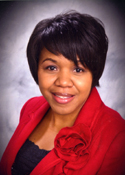 What advice can you give to nonprofits seeking to work with the W.K. Kellogg Foundation?
What advice can you give to nonprofits seeking to work with the W.K. Kellogg Foundation?
The W.K. Kellogg Foundation stands on the belief that all children should have an equal opportunity to thrive. We work with communities to improve conditions for vulnerable children, so they can realize their full potential in school and in life. Follow WKKF on twitter at @wk_kellogg_fdn and we also have a Facebook page. The Kellogg Foundation is based in Battle Creek, Mich., and works throughout the United States and internationally. Special emphasis is paid to priority places where there are high concentrations of poverty and where children face significant barriers to success. WKKF priority places in the U.S. are in Michigan, Mississippi, New Mexico and New Orleans; and internationally, are in Mexico and Haiti. You can also visit us on our website at www.wkkf.org to learn more.


